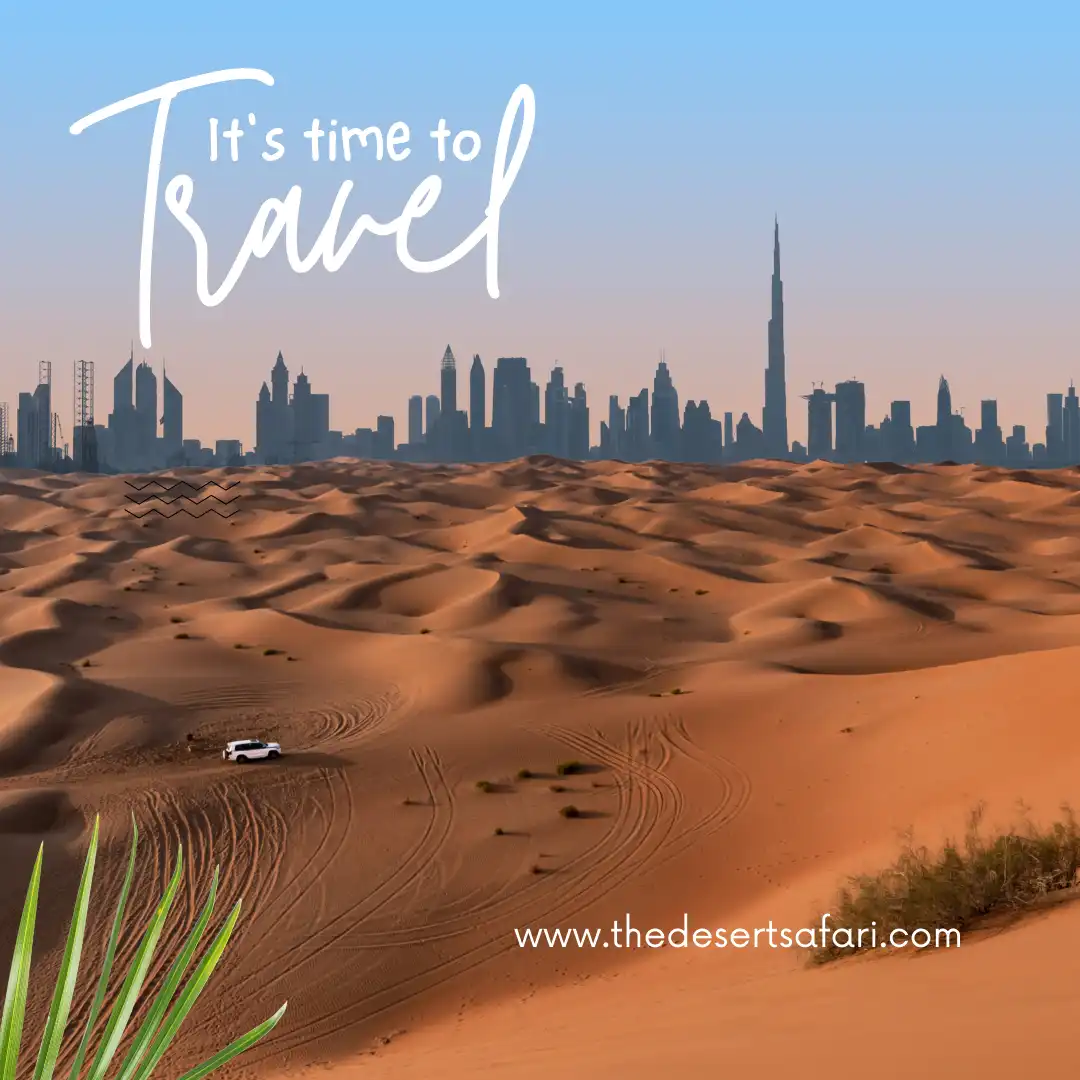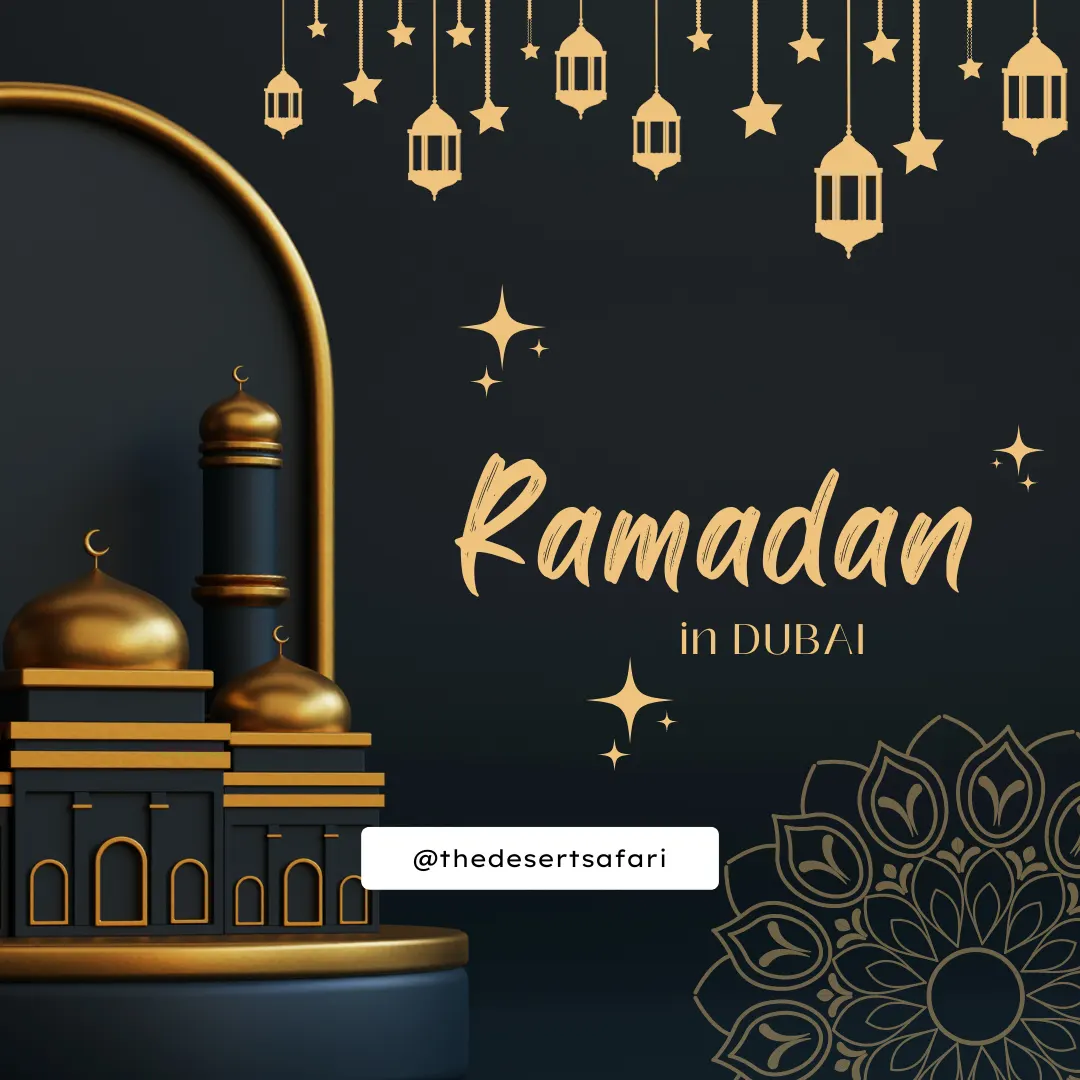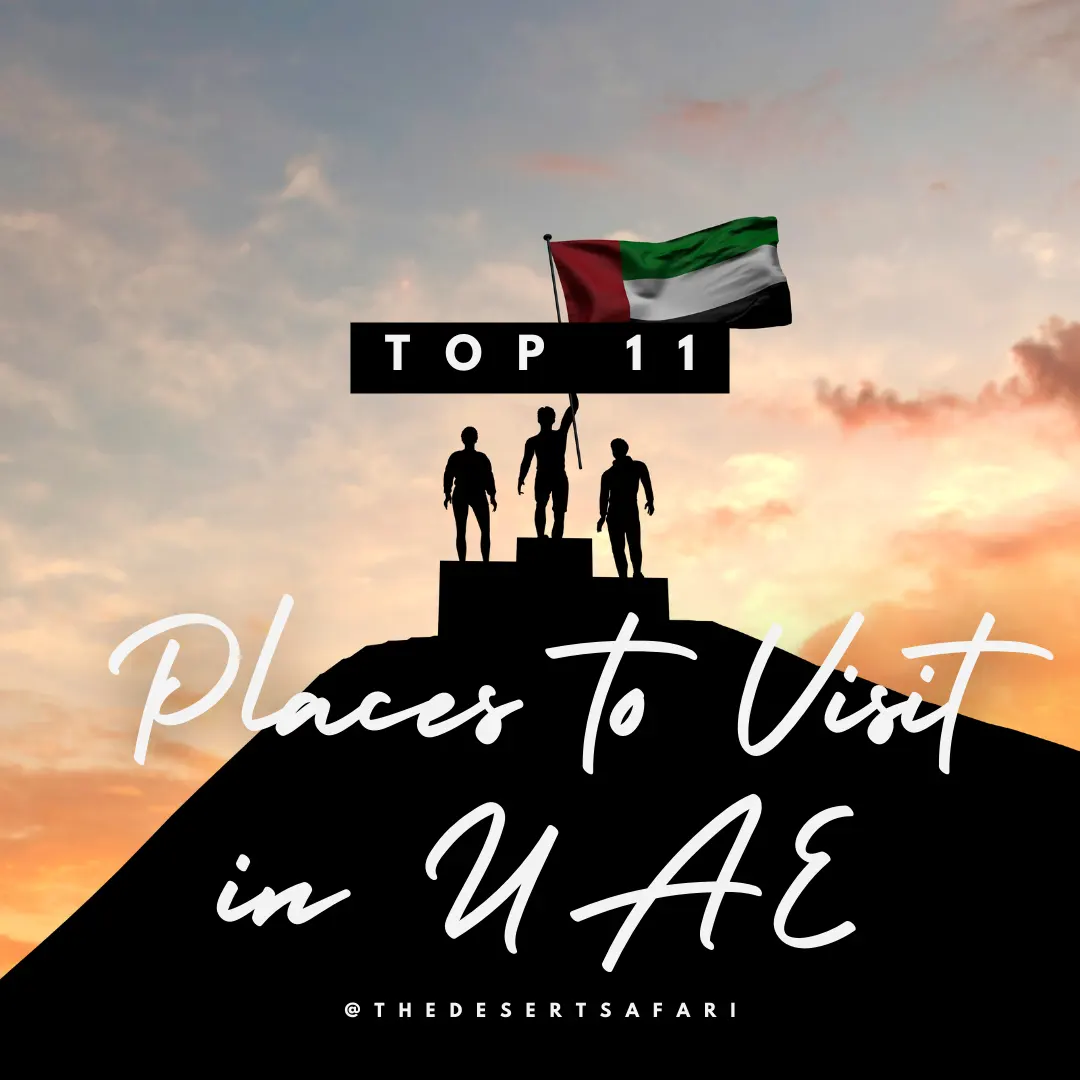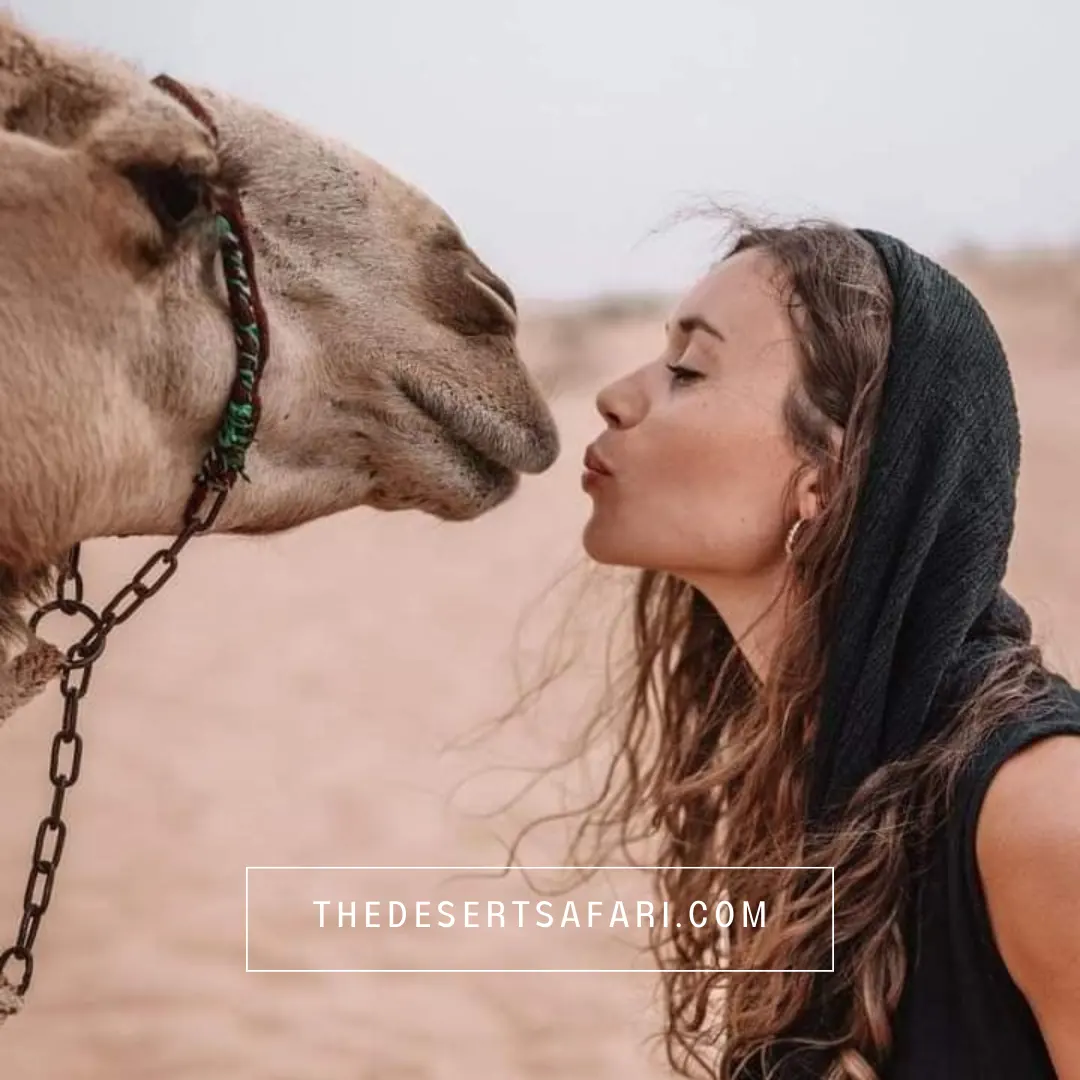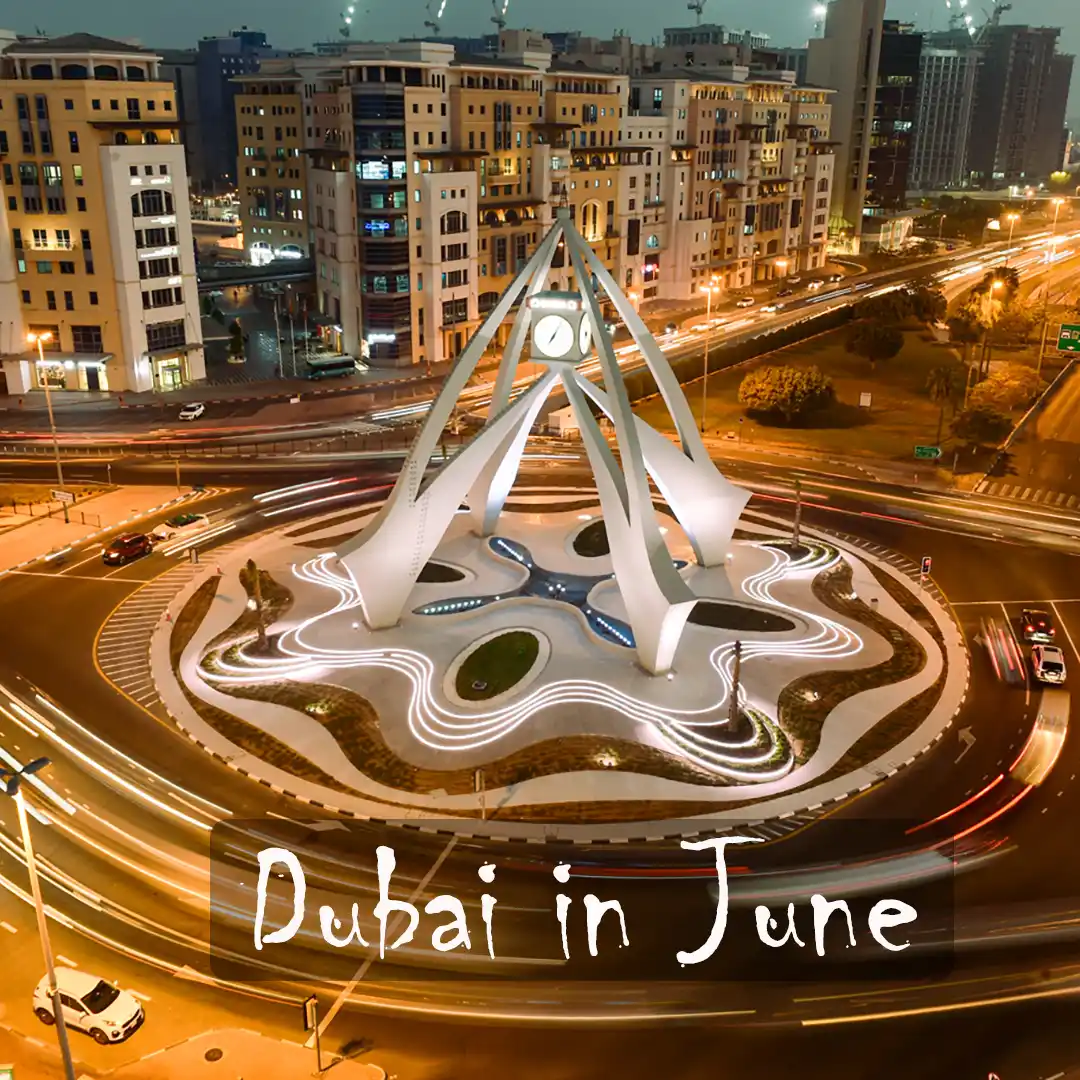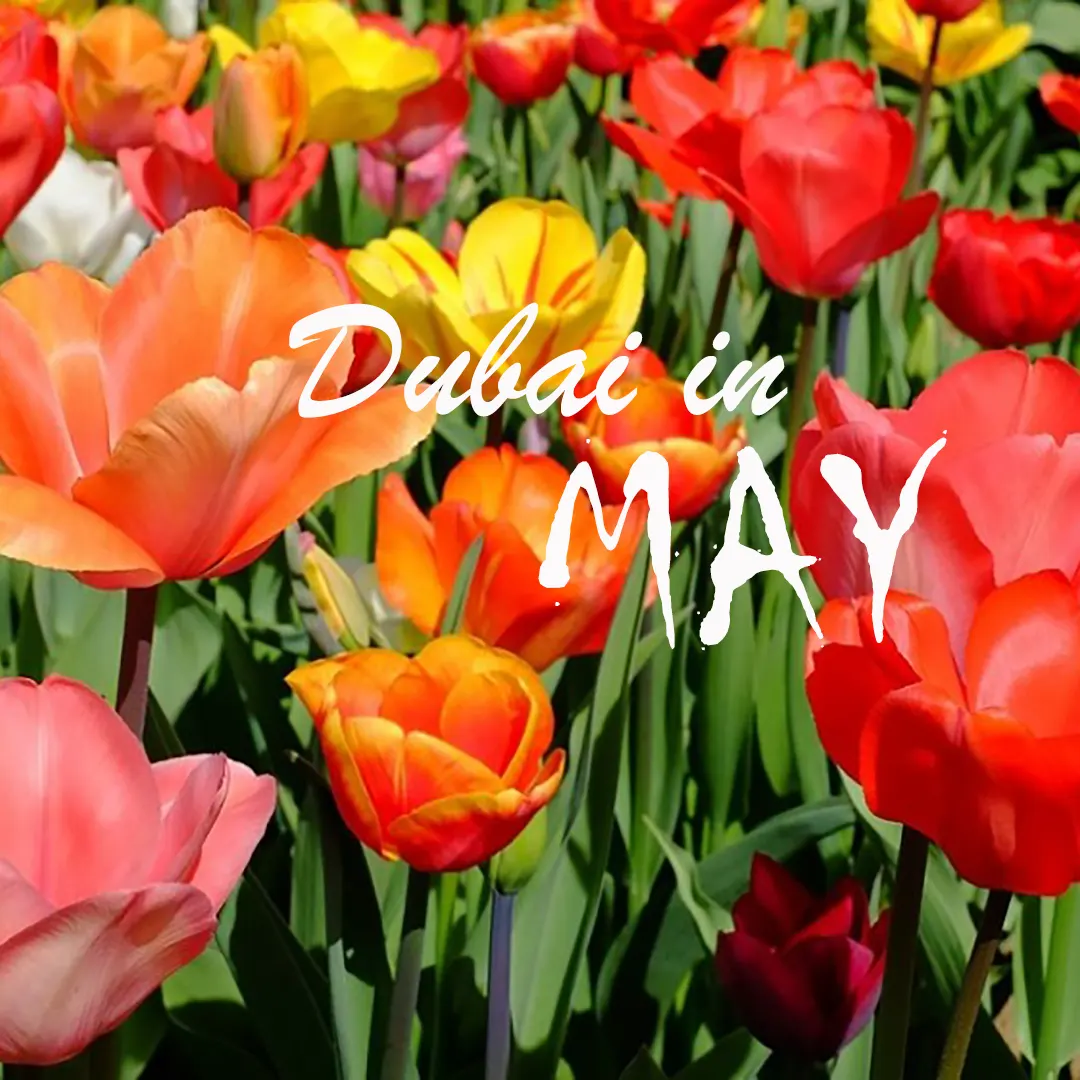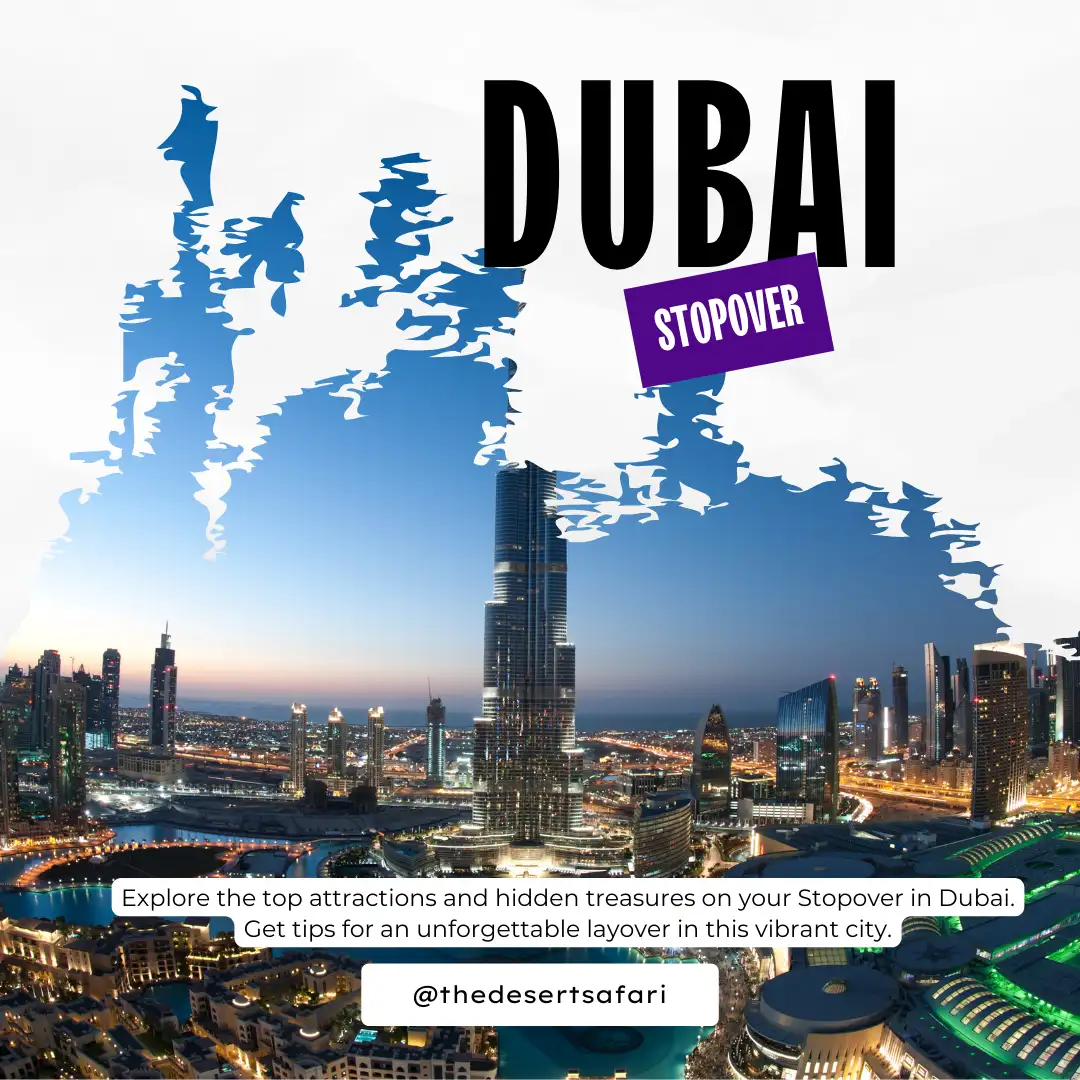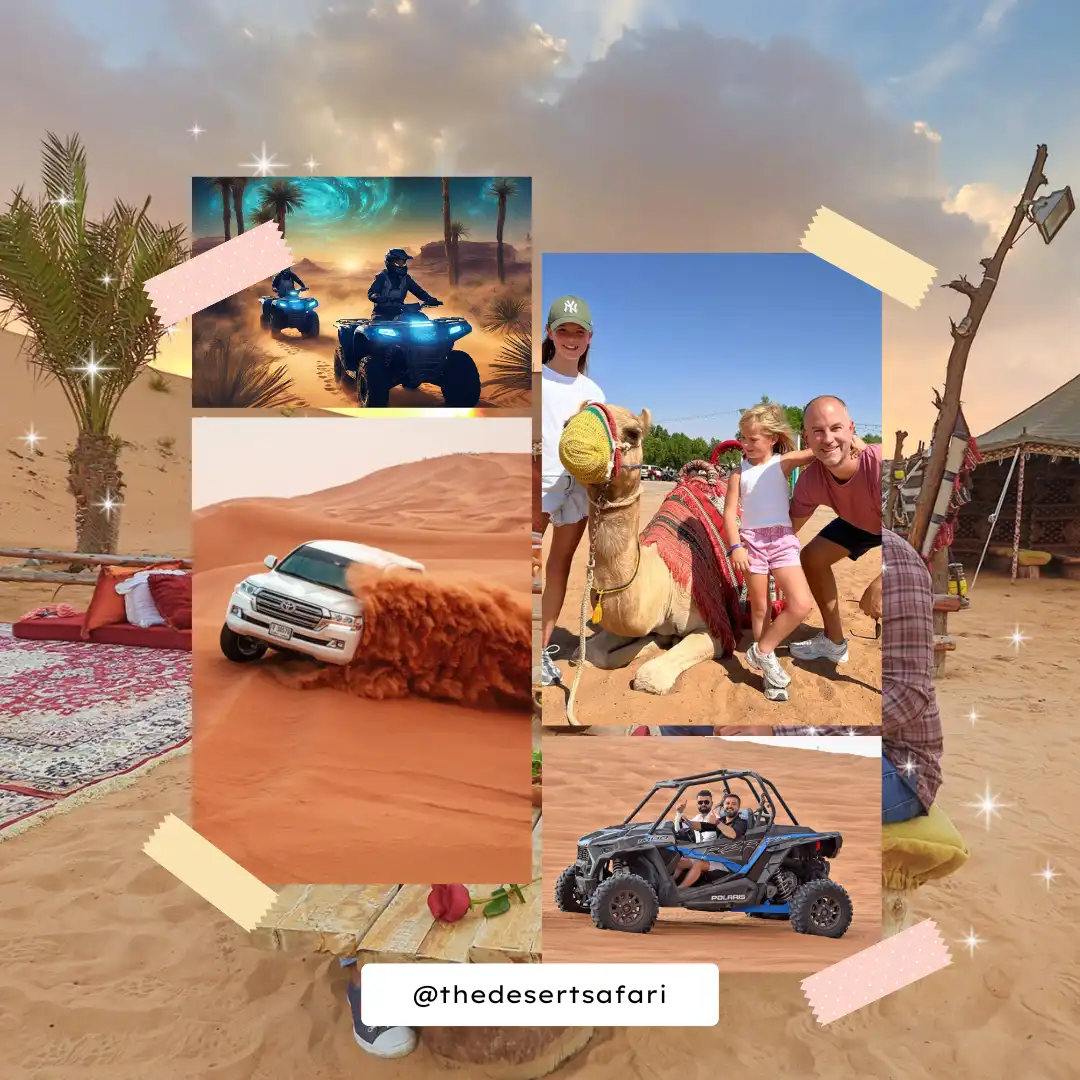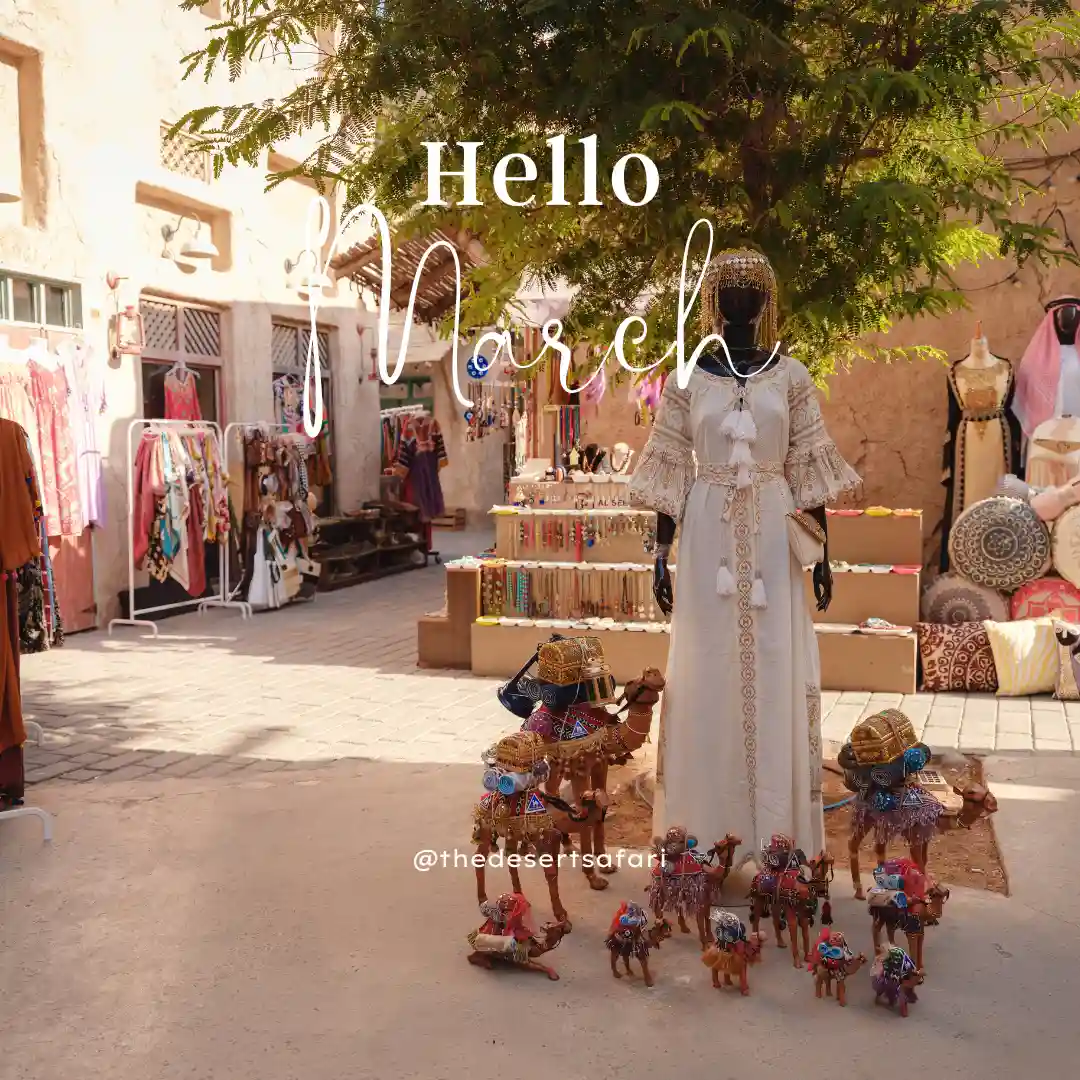Ramadan in Dubai for Tourists
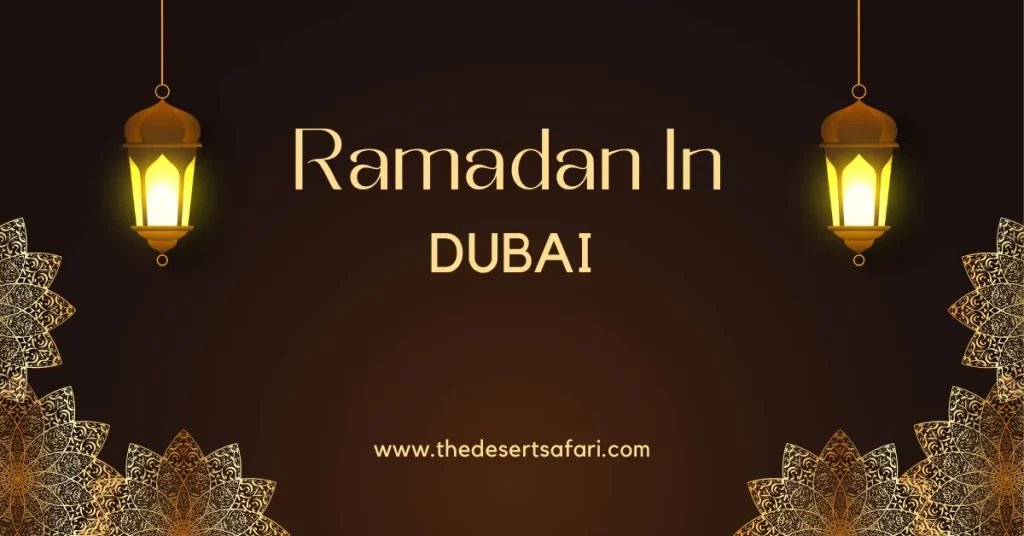
Welcome to Dubai during one of its most profound and spiritual times: Ramadan. Expected to begin on the evening of Thursday, February 27, and continue until Saturday, March 29, 2025, Ramadan’s exact dates are a celestial affair, determined by the lunar calendar and the sighting of the moon. This period marks the ninth month of the Islamic calendar—a time imbued with deep spiritual significance for Muslims around the globe.
During Ramadan, Muslims engage in fasting from dawn until sunset, a practice that encompasses more than just abstaining from food and drink, including water; it also includes refraining from smoking. However, the essence of Ramadan extends beyond these physical abstentions. It’s a time for inner reflection, devotion to faith, and purification of the heart and mind. Followers of Islam strive to cleanse their thoughts, fostering a period rich in prayer, introspection, and community.
Dubai, a city known for its dazzling modernity and vibrant cultural tapestry, offers a unique setting to observe and participate in Ramadan. Whether you’re a Muslim observing the fast or a curious tourist eager to experience the cultural depth of this holy month, Dubai presents a mosaic of spiritual and communal experiences that resonate with the core values of Ramadan.
This guide is designed to navigate you through the beauty of Ramadan in Dubai. From understanding the sacred traditions to exploring the city’s dynamic response to this holy month, we aim to enrich your visit with a blend of spiritual insight and practical advice, making your experience in Dubai during Ramadan truly unforgettable.
Understanding Ramadan in Dubai
Ramadan in Dubai is not just a fasting period; it’s a deeply spiritual experience that transforms the city, offering a glimpse into the rich tapestry of Islamic culture and tradition. As the ninth month of the Islamic calendar, Ramadan holds a special place in the hearts of Muslims, signifying a time of reflection, prayer, and community.
The Essence of Ramadan
At its core, Ramadan is about more than abstaining from food and drink during daylight hours. It’s a time for Muslims to purify their souls, increase their piety, and deepen their connection with Allah. Through fasting, individuals are reminded of the suffering of those less fortunate, fostering a spirit of compassion and generosity. This month is also marked by the practice of Salah (prayer) and reading the Quran, with Muslims striving to complete the recitation of the holy book over the course of the month.
Cultural and Spiritual Significance in Dubai
In Dubai, Ramadan is observed with great reverence and is reflected in every aspect of daily life. The city slows down, and the rhythms of life adjust to accommodate the fasting hours. Workdays are shortened, and the pace of life seems to soften, allowing residents and visitors to reflect on the spiritual aspects of their lives.
Dubai’s multicultural landscape embraces Ramadan with a sense of inclusivity. The city lights up with Ramadan decorations, and community iftars (the evening meal with which the fast is broken) become a common sight, bringing together people from different backgrounds to share in the spirit of the month. Mosques throughout the city hold Taraweeh prayers, special nightly prayers where long portions of the Quran are recited.
Ramadan 2025 Observance
As we approach Ramadan in 2025, Dubai prepares to welcome this holy month with open arms. The exact start and end dates of Ramadan may vary based on the lunar calendar, but the city’s preparation and observance of the month remain steadfast. From the majestic Jumeirah Mosque to the historic Al Farooq Omar Bin Al Khattab Mosque, spiritual gatherings, and community iftars showcase the city’s dedication to observing this sacred time.
The observance of Ramadan in Dubai is a testament to the city’s commitment to its cultural roots and religious practices. It offers a unique opportunity for Muslims to renew their faith and for visitors to experience the depth of Islamic culture and hospitality. Whether you’re participating in the fast or exploring the city’s traditions, Ramadan in Dubai is a time for spiritual renewal and cultural discovery.
Planning Your Visit
Visiting Dubai during Ramadan offers a unique lens through which to experience the city’s cultural and spiritual richness. Whether you’re drawn by the allure of experiencing Ramadan firsthand or simply find yourself in Dubai during this sacred month, planning your visit with mindfulness and respect can greatly enhance your experience. Here’s how you can prepare for a visit that’s both enriching and respectful of the local customs.
Timing Your Trip
Ramadan 2025 is anticipated to span from the evening of February 27 to March 29, though these dates are subject to confirmation by the lunar calendar. This period in Dubai is marked by a serene ambiance, with the city taking on a more reflective and tranquil pace. Planning your visit within this timeframe allows you to witness Dubai’s transformation during Ramadan, from the quiet of the day to the festive spirit that comes alive after sunset.
Understanding the Value of Your Visit
Visiting Dubai during Ramadan is an opportunity to witness the city in a different light. The days are quieter, but the nights sparkle with community gatherings and the spirit of togetherness. The Ramadan experience in Dubai is not just about observing the fasting and the spiritual practices; it’s about witnessing the unity and generosity that characterizes this month. It’s a period when the cultural heritage and modern ethos of Dubai blend seamlessly, offering insights into the Emirati way of life that are not as visible at other times of the year.
Key Dates to Remember
- Start of Ramadan 2025: The holy month is expected to begin on February 27.
- Eid al-Fitr 2025: This festival marks the end of Ramadan, tentatively set for Sunday 30th March 2025 or Monday 31st March 2025, celebrating the conclusion of the month of fasting.
Preparing for Your Visit
- Respect the Local Customs: Understanding and respecting the customs of Ramadan is crucial. During daylight hours, eating, drinking, and smoking in public are prohibited for all, regardless of religious beliefs.
- Dress Code: Dressing modestly is particularly important during Ramadan. Opt for attire that covers shoulders and knees, both out of respect and to blend in comfortably with the local populace.
- Plan Your Day Accordingly: With shorter working hours and altered schedules for many attractions, it’s wise to plan your days to align with the timings of the city. The evenings are a wonderful time to explore, as the city comes alive with iftars and social gatherings.
Embracing the Experience
Dubai during Ramadan offers unique experiences, from the spiritual ambiance of the mosques to the lavish iftar buffets that welcome both fasting Muslims and curious visitors alike. Embrace this time to explore, learn, and reflect on the diverse cultural fabric that makes up this vibrant city.
Planning your visit to Dubai during Ramadan with these considerations in mind ensures not just a trip filled with beautiful memories but also a deeper understanding and appreciation of the cultural and spiritual nuances of this holy month.
Guidelines for Tourists during Ramadan in Dubai
Ramadan in Dubai offers a unique opportunity for tourists to immerse themselves in the rich cultural and spiritual fabric of the city. Observing this holy month can be a profoundly enriching experience, provided visitors are mindful of local customs and traditions. Here are some guidelines to help tourists navigate Dubai during Ramadan with respect and appreciation.
Respect the Fast
First and foremost, it’s essential to respect the fast. This means refraining from eating, drinking, or smoking in public during daylight hours. While non-Muslim visitors are not expected to fast, displaying respect by not consuming food or beverages in public view is a sign of cultural sensitivity. Many places offer private areas where tourists can eat and drink discreetly.
Dress Code in Ramadan
Ramadan calls for modesty not just in actions but in dress as well. Tourists are advised to dress conservatively, covering shoulders and knees, to respect the local culture and customs, especially when visiting public places like malls, restaurants, and mosques. This modest dress code is appreciated and aligns with the spiritual ethos of Ramadan.
Behavior and Conduct
The holy month encourages a demeanor of respect and serenity. Loud music, dancing, and boisterous behavior are discouraged in public spaces. It’s a time for reflection and peace, and visitors are encouraged to embrace the calm that pervades the city. Additionally, public displays of affection should be minimized out of respect for local customs.
Participating in Iftar
Iftar, the meal with which the fast is broken at sunset, is a wonderful experience for tourists to partake in. Many hotels and restaurants offer special iftar buffets that showcase traditional Emirati and Middle Eastern cuisines. Participating in an iftar is a beautiful way to experience local culture and hospitality, and visitors are warmly welcomed to join.
Understanding Prayer Times
During Ramadan, you’ll notice that the daily rhythm of life in Dubai is punctuated by prayer times, especially the Maghrib prayer at sunset, which marks the end of the fast. Being mindful of these times, particularly when planning activities or outings, is a sign of respect. Many businesses will pause operations briefly during prayer times.
Cultural Events and Charitable Activities
Ramadan is also a time of charity and community events. Engaging in charitable activities or attending cultural events can be a meaningful way to connect with the local community. From Ramadan tents to cultural lectures and exhibitions, there are numerous ways to immerse yourself in the spirit of the month.
Nightlife and Alcohol Consumption
It’s important for tourists to note that the nightlife in Dubai undergoes significant changes during Ramadan. All pubs and clubs close their doors throughout this holy month, reflecting the city’s observance of a time dedicated to spirituality and reflection. However, for those who wish to consume alcohol, it’s worth noting that liquor shops in Dubai and Ajman remain open. Visitors can purchase alcohol to enjoy privately within their accommodations. This arrangement allows tourists to respect the local customs and practices during Ramadan while still providing an option for private consumption.
Tourists are encouraged to consume alcohol discreetly and only within the confines of their room or designated areas in their hotel that may permit it during Ramadan. This consideration ensures that the sanctity of Ramadan is maintained throughout the city, while visitors can still partake in their personal choices responsibly and respectfully. Remember, public intoxication and drinking in non-designated areas, especially during Ramadan, is frowned upon and can lead to legal issues.
By observing these norms, tourists can contribute to the respectful atmosphere of Ramadan in Dubai, ensuring a harmonious experience for all. Whether participating in iftar, exploring the quieter daytime streets, or enjoying a private evening in, the observance of these guidelines enriches the travel experience, offering a deeper understanding of Dubai’s cultural and spiritual landscape during this sacred month.
Daily Life and Tourism During Ramadan in Dubai
Ramadan transforms the rhythm of daily life in Dubai, casting a serene and contemplative veil over the bustling city. For tourists, this change offers a unique perspective on the city’s cultural and spiritual dynamics. Understanding how daily life and tourism adapt during this holy month can enrich your visit, providing a deeper appreciation for the traditions and customs that shape this vibrant city.
Adjusted Business Hours
During Ramadan, the pace of the city shifts. Many businesses, including government offices, shops, and attractions, operate on reduced hours to accommodate fasting and prayer times. Mornings can be quiet, with activities picking up towards the late afternoon and evening. It’s advisable for tourists to plan their itineraries accordingly, checking the opening hours of places they wish to visit.
Hospitality and Accommodations
Hotels in Dubai are adept at catering to both fasting locals and non-fasting tourists during Ramadan. While respecting the fast, hotels offer meals before sunrise (Suhoor) and after sunset (Iftar) for observing guests, often in private dining areas. Non-fasting guests will find that many hotels also provide dining options throughout the day, ensuring comfort and convenience for all.
Dining Experiences
Eating out during Ramadan offers a special experience, with Iftar buffets being a highlight. After sunset, the city comes alive as families and friends gather to break their fast, and many restaurants offer lavish spreads featuring traditional Emirati and international cuisines. It’s a communal time celebrated with great gastronomy and hospitality, inviting tourists to partake in these memorable feasts.
Nightlife and Leisure
While the nightlife scene in Dubai adjusts during Ramadan, with all pubs and clubs closed, the city is far from dormant. Instead, the focus shifts to more subdued and family-friendly entertainment. Ramadan tents pop up across the city, offering cultural programs, games, and live music after Iftar, providing a unique night-time activity for visitors.
For those who wish to enjoy alcohol, it’s important to note that while pubs and clubs are closed, liquor shops in Dubai and Ajman remain open. Tourists can purchase alcohol to consume privately in their rooms, respecting the public observance of Ramadan.
Shopping and Festivities
Shopping malls remain open and become especially lively in the evenings, hosting special events, sales, and extended hours. The Ramadan Night Market is a popular attraction, offering everything from fashion and jewelry to food and crafts, encapsulating the festive spirit of the month.
Cultural Immersion
Ramadan in Dubai is a time rich with cultural significance, offering tourists numerous opportunities for immersion. Museums, cultural centers, and historical sites often have special programs or tours designed to educate visitors about the history and practices of Ramadan, making it an excellent time for cultural exploration.
Beaches and Outdoor Activities
Dubai’s beaches and many outdoor activities remain accessible during Ramadan. Mornings can be particularly serene, offering a peaceful setting for walks or relaxation by the sea. However, visitors should continue to practice modesty and discretion in dress and behavior, in line with the respectful observance of Ramadan.
Experiencing Ramadan as a Tourist in Dubai
Experiencing Ramadan in Dubai as a tourist is an opportunity to immerse yourself in a month of reflection, community, and cultural richness. The city, known for its towering skyscrapers and bustling markets, transforms during Ramadan, offering a unique blend of traditional customs and modern hospitality. Here’s how you can fully embrace and participate in this sacred time.
Participating in Iftar and Suhoor
One of the most memorable experiences for any tourist during Ramadan is participating in Iftar, the evening meal that breaks the day’s fast. Many hotels and restaurants in Dubai host grand Iftar buffets, where people of all backgrounds come together to share a meal. This is a wonderful opportunity to taste traditional Emirati dishes and international cuisines in a festive atmosphere. Similarly, Suhoor, the pre-dawn meal, offers a quieter, introspective dining experience that you can enjoy in many of Dubai’s establishments.
Cultural and Religious Observations
Dubai, with its rich Islamic heritage, provides numerous avenues for tourists to learn about Ramadan’s religious significance. Visiting the city’s grand mosques, such as the Jumeirah Mosque, which welcomes non-Muslim visitors for tours, can be enlightening. These visits often come with discussions about Islam, Ramadan, and the cultural practices associated with this holy month, providing deep insights into the faith and its followers.
Night Markets and Festivals
The Ramadan Night Market is an event that captivates both locals and tourists. Stalls brimming with crafts, clothes, jewelry, and food items offer a glimpse into the local culture and artisanal skills. The atmosphere is electric, with live entertainment and activities that continue late into the night, showcasing Dubai’s vibrant community spirit during Ramadan.
Charity and Community Engagement
Ramadan is a time of giving and charity, and tourists can participate in this aspect by engaging in community service or contributing to charitable causes. Many hotels and organizations in Dubai organize events or drives where you can volunteer or donate, allowing you to give back to the community and experience the true spirit of Ramadan.
Experiencing the City’s Tranquility
The daytime hours of Ramadan offer a unique perspective on Dubai’s usually bustling streets. With the pace of life slowing down, tourists can enjoy the city’s attractions in a more serene atmosphere. It’s an excellent time to visit museums, art galleries, and cultural sites, where you can absorb Dubai’s history and artistic heritage without the usual crowds.
Respect and Understanding
Above all, experiencing Ramadan as a tourist is about showing respect and understanding towards the local customs and traditions. By dressing modestly, refraining from public eating and drinking during daylight hours, and showing sensitivity towards those who are fasting, tourists can ensure their visit is harmonious and enriching.
Reflection and Personal Growth
Lastly, tourists are invited to embrace the reflective nature of Ramadan. This can mean taking time to ponder one’s own beliefs and values, engaging in acts of kindness, or simply appreciating the quiet moments that the month offers. Ramadan in Dubai provides a backdrop for personal growth and understanding, bridging cultural and religious divides.
Practical Tips for Tourists
Visiting Dubai during Ramadan is a unique and enriching experience, offering insights into the cultural and spiritual fabric of the city. To ensure your visit is both respectful and enjoyable, here are some practical tips tailored for tourists navigating Dubai during this holy month.
Plan Your Day Around Prayer Times
Dubai observes five daily prayers, with the Maghrib prayer at sunset marking the end of the daily fast. These times can affect business operations and public transportation schedules. It’s wise to familiarize yourself with the prayer times, as some shops may close briefly, and the pace of life slows down to accommodate prayer and iftar gatherings.
Stay Hydrated and Respectful
While you’re free to eat and drink in private, remember that the heat of Dubai can be intense, especially if you’re out exploring. Always carry water with you, but be discreet about drinking in public during fasting hours. Consider returning to your hotel or another private space for meals or refreshments during the day.
Experience Iftar, Even if You're Not Fasting
Iftar is a communal and joyous occasion, and many restaurants offer special iftar buffets or set menus. This is a wonderful opportunity for tourists to partake in the local culture and cuisine. Book in advance, as these meals are popular among both locals and visitors.
Visit Cultural and Historical Sites
Ramadan is an ideal time to explore Dubai’s cultural and historical sites, many of which offer extended hours and special tours during the month. Places like the Sheikh Mohammed Centre for Cultural Understanding host events and activities designed to educate visitors about Ramadan and Emirati culture.
Take Advantage of the Nightlife
While the club scene may be on pause, Dubai’s nightlife during Ramadan takes on a more subdued and cultural tone. Explore Ramadan tents for live music, traditional entertainment, and late-night snacks. These tents offer a family-friendly atmosphere where you can experience the hospitality and warmth of the local culture.
Shopping and Ramadan Sales
The malls in Dubai are a hive of activity during Ramadan, especially in the evening after iftar. Many retailers offer special Ramadan sales and extended shopping hours, making it a great time to find deals on high-quality goods, from fashion to electronics.
Alcohol Consumption in Ramadan
Remember that pubs and clubs are closed during Ramadan, but liquor stores in Dubai and Ajman are open for purchasing alcohol to be consumed privately. Always consume alcohol discreetly and within the confines of your accommodation, respecting the local customs and laws regarding alcohol consumption during this sacred month.
Enjoy the Spirit of Ramadan
Finally, approach your visit with an open heart and mind. Ramadan is a time of generosity, community, and reflection. Engaging with locals, participating in charitable acts, and showing respect for the customs and traditions can make your experience during Ramadan in Dubai profoundly impactful.
Suggested Tours during Ramadan in Dubai
Ramadan in Dubai is a time of spiritual reflection and cultural immersion. For tourists looking to experience the city’s unique ambiance during this holy month, several tours and activities are thoughtfully designed to enhance understanding and appreciation of Islamic traditions and the local way of life. Here are some suggested tours to consider during your visit:
Cultural Heritage Tours
Explore the historical heart of Dubai with a guided tour through the Al Fahidi Historical Neighbourhood. These tours often include visits to traditional houses, art galleries, and the Dubai Museum, providing insight into the emirate’s rich history and cultural evolution. Special Ramadan-themed tours may also offer insights into the customs and practices of the holy month.
Iftar and Suhoor Experiences
Participate in an Iftar or Suhoor meal, which are among the most significant aspects of Ramadan. Several tour operators and hotels offer packages where visitors can enjoy traditional meals either in a Bedouin tent in the desert, at a high-end restaurant, or even in a local’s home, offering a genuine taste of Emirati hospitality and cuisine.
Mosque Visits
Guided tours of Dubai’s majestic mosques, such as the Jumeirah Mosque, are available, providing non-Muslim visitors with a rare opportunity to learn about Islamic practices, architecture, and the significance of Ramadan. These tours are conducted with respect and sensitivity, often concluding with a Q&A session to deepen visitors’ understanding.
Ramadan Tents
Experience the communal spirit of Ramadan by visiting one of Dubai’s many Ramadan tents. These tents offer not just food and drink but a chance to witness the social and cultural gatherings that take place during the holy month, often featuring traditional music, storytelling, and games.
Shopping and Culinary Tours
With extended evening hours, Ramadan is a fantastic time to explore Dubai’s bustling souks and markets. Culinary tours also gain a special flavor during Ramadan, offering tastes of traditional sweets like Luqaimat, dates, and other special dishes prepared specifically for this time of year.
Night Tours
Discover a different side of Dubai with a night tour during Ramadan. These tours can include everything from a leisurely dhow cruise along the Dubai Creek to admire the city lights to guided walks through vibrant neighborhoods, experiencing the festive atmosphere post-Iftar.
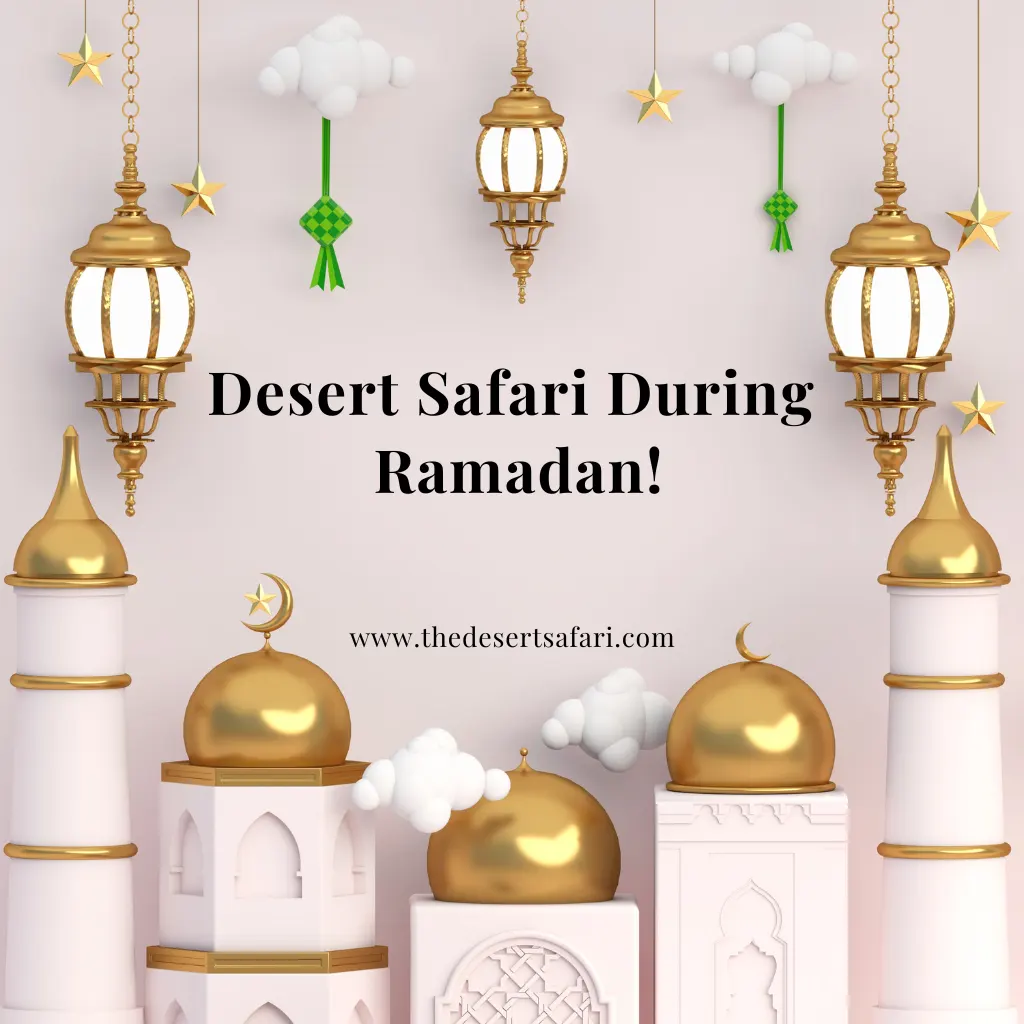
While daytime desert safaris may be challenging due to the heat and fasting hours, evening desert safaris in Ramadan are exceptional. Enjoy the cool desert evening with activities like camel rides, sandboarding, and a traditional iftar under the stars.
Conclusion
Experiencing Ramadan in Dubai is an opportunity to witness the city through a lens of profound cultural and spiritual significance. This holy month transforms Dubai, inviting both residents and visitors to engage in a period of reflection, community, and celebration. As we’ve explored, from understanding the sacred practices of Ramadan to navigating the city’s vibrant life during this time, there’s a wealth of experiences that await the curious and respectful tourist.
Ramadan in Dubai is not just about observing the fast or the altered pace of daily life; it’s about connecting with the deeper values of empathy, generosity, and hospitality that characterize this period. Whether you’re breaking bread with locals at an iftar, exploring the city’s rich cultural heritage, or simply soaking in the serene atmosphere of a Ramadan evening, the experiences you gather will be imbued with a sense of shared humanity and spiritual warmth.
For those planning to visit Dubai during Ramadan, the month offers a unique glimpse into the heart of the city’s cultural traditions. It’s a time when the cosmopolitan vibrancy of Dubai melds with its Islamic heritage, creating a tapestry of experiences that are both enriching and enlightening. By embracing the guidelines and opportunities presented, tourists can fully appreciate the beauty of Ramadan, making their visit not just a journey through a city, but a journey of cultural and spiritual discovery.
As Dubai continues to welcome visitors with open arms during Ramadan, it stands as a beacon of cultural fusion and mutual respect. The city exemplifies how tradition and modernity can coexist harmoniously, offering lessons in tolerance and understanding that resonate far beyond its borders.
In conclusion, visiting Dubai during Ramadan is an enriching experience that offers insights into the soul of the city. It’s a time to slow down, reflect, and partake in traditions that have been celebrated for centuries. With a spirit of openness and respect, your visit during this holy month can become a memorable chapter in your travel diary, filled with moments of joy, reflection, and connection.
FAQs
Yes, Dubai remains open during Ramadan, with businesses operating on adjusted schedules to accommodate fasting hours.
Absolutely, visiting Dubai during Ramadan offers a unique cultural experience, allowing visitors to witness the city’s rich traditions and communal spirit.
Dress modestly, covering shoulders and knees, out of respect for the local customs, especially in public spaces.
No, not everything is closed. While some businesses may have reduced hours, essential services and many tourist attractions remain open.
Yes, shops are open but may operate on different hours, particularly extending into the evening after iftar.
Ramadan in Dubai is the observance of the ninth month of the Islamic calendar, marked by fasting, prayer, and community, reflecting the city’s cultural and spiritual life.
Tourists can consume alcohol in private or in licensed venues that may have special permissions to serve alcohol during certain hours, but public consumption is not permitted.
Restaurants are open, with many offering daytime dining in discreet areas for non-fasting guests and special iftar meals after sunset.
Parking regulations may be adjusted during Ramadan, with free parking typically offered during iftar times in certain areas to accommodate worshippers and diners.

